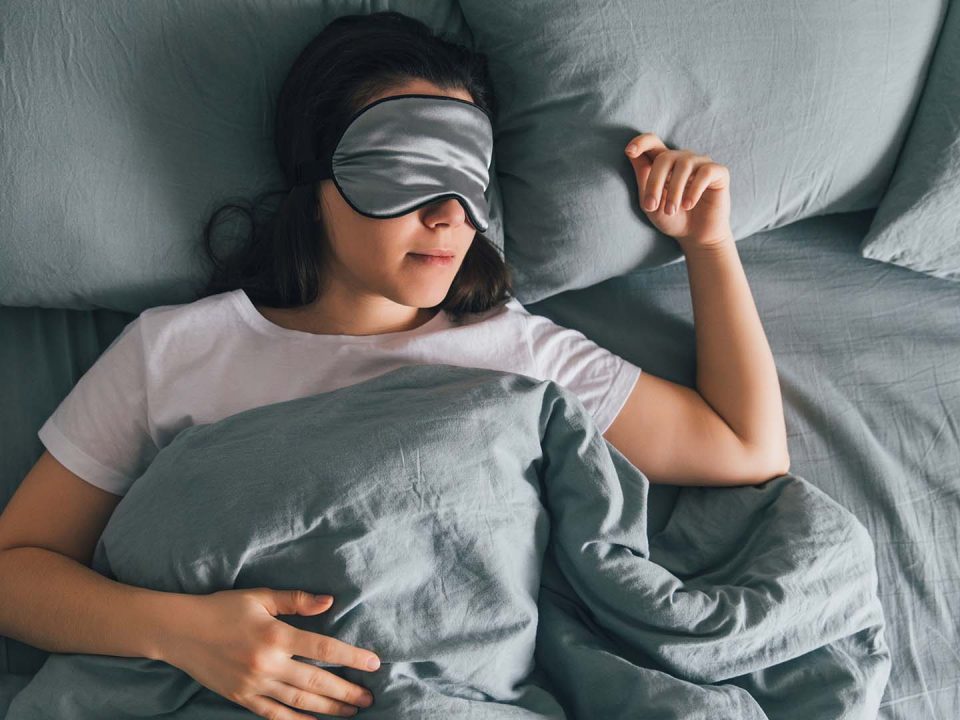Table of contents
Getting enough sleep isn't just a luxury – it's a necessity that millions of Americans struggle with daily. A staggering 70 million Americans face chronic sleep problems, while 1 in 3 adults regularly miss out on essential rest, according to recent data from SingleCare.
The impact of this sleep crisis reaches far beyond just feeling tired. Research from the American Psychological Association shows that lack of sleep significantly reduces positive emotions and increases anxiety symptoms. When you're not sleeping well, your heart might race more often, and worrying becomes more frequent.
The consequences get even more serious when we look at mental health. Harvard University research reveals that people struggling with insomnia are five times more likely to develop depression. Often, sleep problems are the first warning sign of developing depression.
Geographic patterns play a role too. The CDC has found significant variations in sleep patterns across different regions, with some areas showing higher rates of sleep deprivation than others. These patterns often align with work schedules, lifestyle factors, and local cultural habits.
Think of sleep as your body's daily reset button. Without it, your emotional stability, creativity, and even life expectancy can take a hit. The good news? Understanding these impacts is the first step toward making positive changes in your sleep habits. You're not alone in this journey, and small improvements in your sleep routine can lead to significant benefits for your overall well-being.
The Scale of Sleep Deprivation
Sleep deprivation isn't just about feeling tired – it's a widespread health concern affecting millions. According to recent data from SingleCare, a staggering 70 million Americans struggle with chronic sleep problems. That's nearly one in every three adults regularly missing out on essential rest.
The impact reaches far beyond just feeling groggy. The American Psychological Association reports that insufficient sleep significantly decreases positive emotions and increases anxiety symptoms. This creates a troubling cycle where poor sleep leads to decreased well-being, which in turn makes it harder to rest properly.
Geographic patterns play a crucial role too. The CDC has identified specific regions where sleep issues are more prevalent, with some areas reporting up to 40% of adults getting less than the recommended amount of sleep. Urban areas typically show higher rates of sleep deprivation compared to rural communities.
The economic toll is equally concerning. Sleep-deprived workers show reduced productivity, increased accident rates, and higher healthcare costs. Harvard University research indicates that poor sleep quality affects everything from job performance to personal relationships, creating a ripple effect throughout society.
Think of sleep deprivation as a silent epidemic – one that affects people across all age groups and socioeconomic backgrounds. Whether you're a busy professional, a student, or a parent, quality sleep isn't just a luxury – it's a fundamental need for overall health and well-being.
Mental Health Connection
The relationship between sleep and mental health runs deeper than most realize. According to Harvard University research, people struggling with insomnia face a startling five times higher risk of developing depression. This isn't just about feeling tired – it's about your emotional wellbeing.
Recent findings from the American Psychological Association show that even short-term sleep loss can trigger anxiety symptoms. When you don't get enough rest, your heart rate might increase, and worrying becomes more frequent. Think of sleep as your emotional reset button – without it, maintaining a positive outlook becomes challenging.
Your brain needs quality sleep to process emotions effectively. Studies reveal that sleep-deprived individuals experience fewer positive emotions and struggle more with daily stress. It's like trying to drive with a foggy windshield – everything becomes more difficult to navigate.
The cycle can be particularly tough because sleep problems often appear first, acting as an early warning sign of depression. The good news? Improving your sleep habits can significantly boost your mental health. Small steps, like maintaining a consistent bedtime routine, can make a big difference in how you feel emotionally.
Mental health professionals emphasize that quality sleep isn't a luxury – it's a necessity for psychological wellness. When you prioritize rest, you're not just helping your body; you're protecting your mind too.
Sources:
Physical Health Consequences
Your body takes a serious hit when you don't get enough sleep. Research shows that chronic sleep loss affects nearly every system in your body, from your heart to your immune defenses.
Missing sleep raises your blood pressure and increases inflammation throughout your body. According to the Centers for Disease Control and Prevention, adults who sleep less than 7 hours per night have a 32% higher risk of heart disease (source).
Your immune system also suffers when you're sleep-deprived. Studies from the Mayo Clinic reveal that people who don't get enough sleep are three times more likely to catch a cold (source). Even one night of poor sleep can reduce your natural killer cells by up to 70%.
Weight management becomes much harder without proper rest. The Harvard School of Public Health found that sleep-deprived individuals consume an average of 385 extra calories per day (source). This happens because lack of sleep disrupts hormones that control hunger and fullness.
Your endocrine system gets thrown off balance too. Just one week of insufficient sleep can alter your glucose metabolism as much as aging 20 years. The American Diabetes Association reports that people who regularly sleep less than 6 hours have a 48% increased risk of developing type 2 diabetes (source).
The good news? These effects are reversible. Your body has an amazing ability to heal when you prioritize rest. Start by adding just 30 minutes more sleep tonight – your body will thank you.
Remember, quality sleep isn't a luxury – it's essential maintenance for your body's vital systems. Think of it as your nightly repair session, where your body heals and prepares for another day of keeping you healthy and strong.
Recovery and Management Strategies
Getting better sleep doesn't have to be complicated. Small changes can lead to big improvements in your sleep quality. Let's explore science-backed strategies that actually work.
Creating a consistent sleep schedule is your first step to better rest. The American Academy of Sleep Medicine recommends going to bed and waking up at the same time every day, even on weekends. This helps regulate your body's natural sleep-wake cycle.
Your bedroom environment matters more than you might think. According to the National Sleep Foundation, the ideal sleep temperature is between 60-67°F (15-19°C). Keep your room dark, quiet, and cool for optimal rest. Blackout curtains and white noise machines can help create the perfect sleep sanctuary.
Screen time before bed is a major sleep disruptor. Harvard researchers found that blue light from devices can suppress melatonin production for twice as long as natural light. Try putting away all screens at least one hour before bedtime.
Exercise can significantly improve your sleep quality, but timing is crucial. The Sleep Foundation reports that moderate aerobic exercise can reduce the time it takes to fall asleep by up to 55%. However, avoid vigorous workouts within 2-3 hours of bedtime.
Consider these practical steps for better sleep:
- Limit caffeine after 2 PM
- Create a relaxing bedtime routine
- Use your bed only for sleep and intimacy
- Practice stress-reducing activities like meditation or gentle stretching
If sleep problems persist for more than three weeks, don't hesitate to seek professional help. A sleep specialist can identify underlying issues and provide personalized solutions for your specific situation.
Sources: National Sleep Foundation, Harvard Health, American Academy of Sleep Medicine]
Expert Recommendations: Your Guide to Better Sleep
Getting quality sleep isn't just about lying in bed for eight hours. According to the National Sleep Foundation, adults need 7-9 hours of quality sleep each night to function at their best. But timing isn't everything – it's the quality that counts.
Age-Specific Sleep Guidelines
The American Academy of Sleep Medicine (AASM) has clear recommendations for different age groups:
- Teenagers: 8-10 hours
- Adults (18-64): 7-9 hours
- Older adults (65+): 7-8 hours
Warning Signs You Shouldn't Ignore
Pay attention if you're experiencing:
- Difficulty staying awake during daily activities
- Taking more than 30 minutes to fall asleep
- Waking up multiple times during the night
- Feeling unrested despite adequate sleep time
When to Seek Professional Help
According to Harvard Medical School's Division of Sleep Medicine, you should consult a healthcare provider if you experience:
- Persistent insomnia lasting more than three weeks
- Loud snoring with pauses in breathing
- Chronic daytime fatigue despite adequate sleep
- Sleep problems affecting your daily life
Prevention Strategies That Work
Research from the Sleep Foundation suggests these effective practices:
- Stick to a consistent sleep schedule
- Create a relaxing bedtime routine
- Keep your bedroom cool (65-68°F)
- Limit screen time before bed
- Avoid caffeine after 2 PM
Remember, improving your sleep habits is a journey, not a race. Start with one change and build from there. Your body and mind will thank you for it.
Sources:







